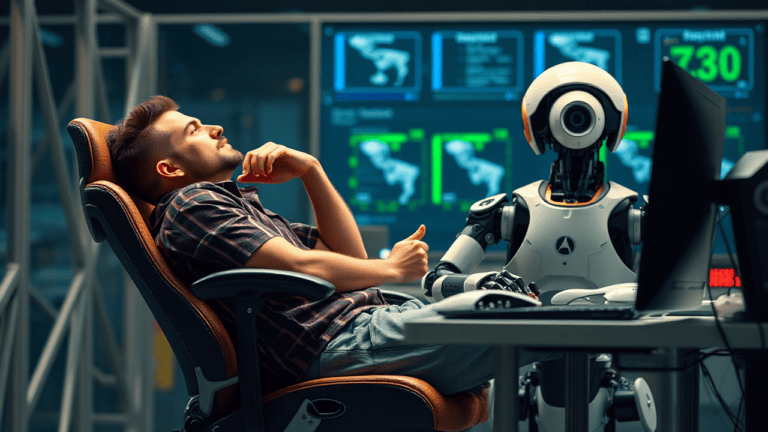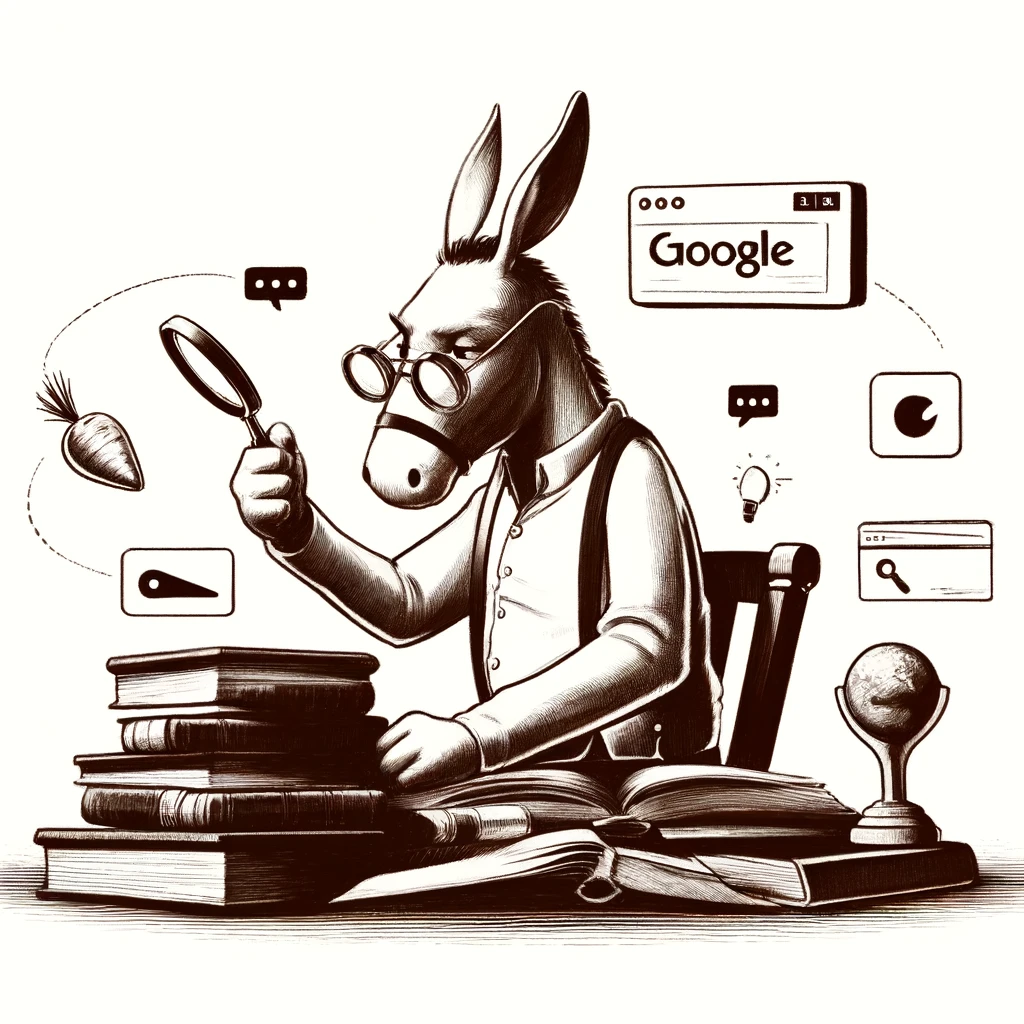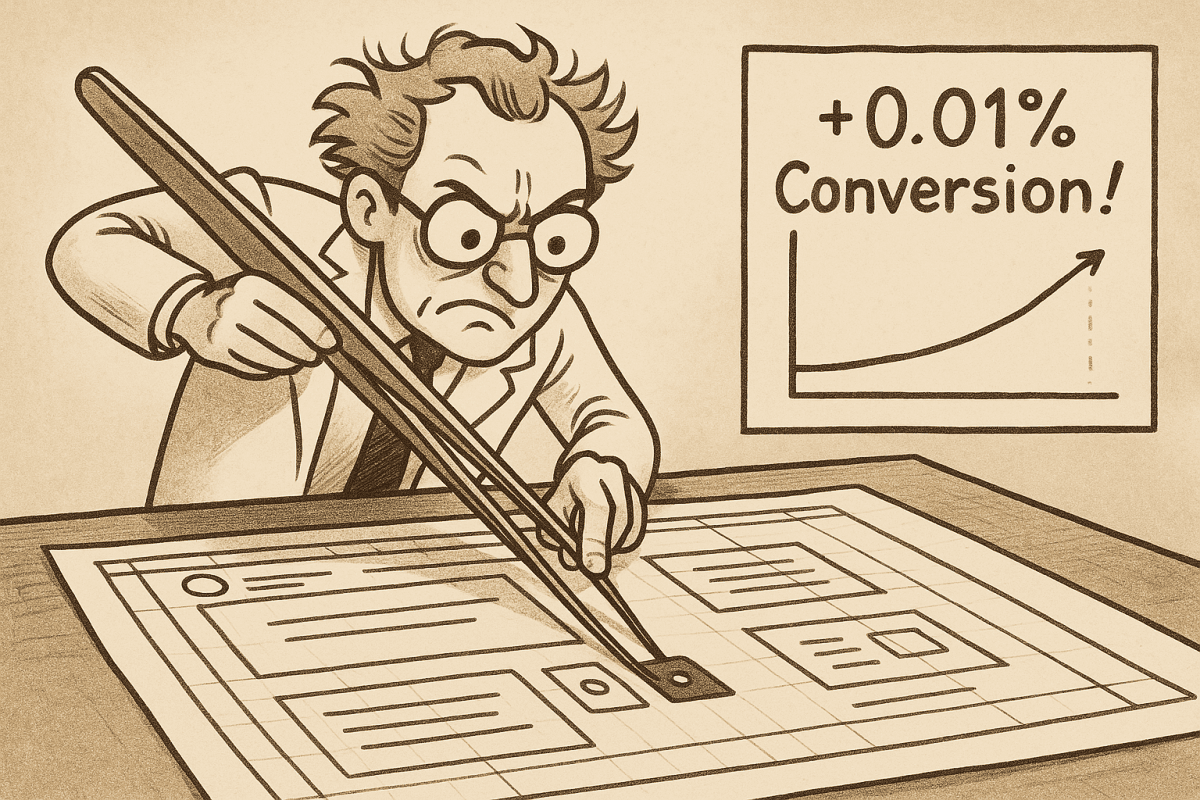Big news in the world of AI and employment! Researchers have just released the results of a groundbreaking study that puts AI head-to-head with human workers in real-world job tasks. This isn’t your typical AI benchmark – it’s a practical test of how well AI can actually do the work of highly skilled professionals.
Let’s dive into what this means for the future of work, your career, and the rapidly changing job market.
The AI Job Performance Study: What You Need to Know
METR (Model Evaluation and Threat Research) just dropped some major findings about how well top AI systems can handle real job tasks. They tested two of the most advanced AI models out there:
- GPT-4o (from OpenAI)
- Claude 3.5 Sonnet (from Anthropic)
Here’s the shocker: These AIs performed as well as human experts on tasks that typically take up to 30 minutes to complete. We’re talking about work that usually requires a STEM degree and 3+ years of experience.
But here’s the kicker – the AI did the work for about 1/30th of the cost of a human worker (based on typical US wages for these jobs).
What Kind of Work Did They Test?
The researchers focused on three high-skill areas:
- Cybersecurity: Things like testing websites for security flaws
- Machine Learning: Tasks like training AI models to classify audio recordings
- Software Engineering: Complex coding work, including optimizing Python scripts with CUDA
These aren’t entry-level jobs – we’re talking about skilled work that commands high salaries in today’s market.
Why This Study Matters
Most AI tests focus on things like solving math problems or answering trivia. That’s interesting for researchers, but it doesn’t tell us much about how AI will impact real jobs.
This study is different. It looks at AI the way an employer would look at a job candidate:
- What tasks can you actually complete?
- How much will it cost to hire you?
That’s what makes this an “AGI-like” test. It’s not about abstract intelligence – it’s about getting work done in the real world.
Breaking Down the Results
Let’s look closer at what the study found:
1. AI Matches Humans on Many Tasks
For work that takes a skilled human up to 30 minutes, the top AI models performed just as well. This includes a wide range of tasks that you’d typically need a college degree and several years of experience to handle competently.
2. The Cost Difference is Staggering
When AI could complete a task, it did so at about 1/30th the cost of hiring a human worker (based on median US wages for college graduates). That’s a massive difference that could reshape how companies think about staffing and project costs.
3. AI Still Has Limits (For Now)
The study found that AI struggled with more complex tasks that would take humans several hours or days to complete. However, even on these harder problems, the AI models were able to solve about 5% of them successfully.
4. Rapid Progress
It’s important to note how quickly AI is advancing. Just six months ago, previous versions of these AI systems could only handle very basic professional tasks (things humans could do in under 10 minutes). The jump in capability over such a short time is remarkable.
What This Means for Different Industries
Let’s break down how this could impact various sectors:
Cybersecurity
- Short-term impact: AI could take over routine security scans and basic threat analysis.
- Long-term potential: As AI improves, it may handle more complex vulnerability assessments and even assist in real-time threat response.
Machine Learning / Data Science
- Short-term impact: AI could automate data preprocessing, feature engineering, and basic model training tasks.
- Long-term potential: AI might design and optimize complex machine learning pipelines with minimal human oversight.
Software Engineering
- Short-term impact: AI could handle code refactoring, bug fixes, and writing basic functions.
- Long-term potential: AI may take on larger portions of software development, potentially writing entire applications with high-level human guidance.
Other Knowledge Work
While not directly tested in this study, the results suggest AI could have similar impacts on other fields requiring analytical and problem-solving skills:
- Marketing: AI might handle data analysis, content creation, and campaign optimization.
- Finance: Automated financial modeling, risk assessment, and even trading strategies could become more AI-driven.
- Legal: AI could take on contract review, legal research, and document preparation tasks.
The Big Questions This Raises
This study forces us to confront some major questions about the future of work:
1. How Fast Will AI Improve?
If AI made this much progress in just six months, what will it be capable of in a year? Five years? We might see AI tackling increasingly complex tasks at an accelerating rate.
2. What Jobs Are Truly “AI-Proof”?
As AI gets better at analytical and creative tasks, we need to think hard about what skills will remain uniquely human. This might include:
- High-level strategic thinking
- Complex emotional intelligence and interpersonal skills
- Novel problem-solving in unpredictable environments
3. How Will Education and Training Change?
If AI can handle many entry and mid-level professional tasks, how should we be preparing students and workers for the future job market? We may need to shift focus towards skills that complement AI rather than compete with it.
4. What Are the Economic Implications?
The potential cost savings for businesses are enormous, but this could lead to significant job displacement. How can we ensure the benefits of AI are distributed fairly across society?
How to Prepare for an AI-Driven Workforce
Whether you’re a student, a professional, or a business owner, it’s crucial to start adapting to this AI-driven future. Here are some strategies to consider:
For Individuals:
- Focus on uniquely human skills: Develop your creativity, emotional intelligence, and ability to work in complex social environments.
- Become an AI power user: Learn how to effectively use AI tools to augment your work and increase your productivity.
- Specialize in AI oversight: There will be growing demand for professionals who can manage, direct, and quality-check AI systems.
- Embrace lifelong learning: The job market is changing rapidly. Commit to continuously updating your skills throughout your career.
For Businesses:
- Assess AI integration opportunities: Look for areas where AI could reduce costs or improve efficiency in your operations.
- Invest in AI training: Help your workforce learn to work alongside AI effectively.
- Rethink job roles: Consider how positions might evolve to focus on tasks that AI can’t easily replicate.
- Ethical considerations: Develop policies for responsible AI use that consider the impact on your workforce and society.
The Bigger Picture: AI as Coworker, Not Just a Tool
This study marks a significant shift in how we should think about AI in the workplace. We’re moving beyond AI as just another productivity tool. These advanced models are becoming more like digital coworkers – entities capable of taking on substantial workloads independently.
This has huge implications:
- Hiring practices: Companies might start “interviewing” AI models for certain roles, assessing their capabilities just like human candidates.
- Team structures: We could see hybrid human-AI teams becoming the norm, with humans focusing on high-level direction and quality control.
- Skill valuation: The skills that command top salaries may shift dramatically as AI takes over more analytical and technical tasks.
Key Takeaways
Let’s sum up the big points from this groundbreaking study:
- AI can match human performance on many professional tasks that take up to 30 minutes.
- The cost savings are massive – AI is about 30 times cheaper than human workers for these tasks.
- Progress is rapid – AI capabilities are expanding quickly, tackling increasingly complex work.
- Job market disruption is coming – Many industries will need to adapt to AI integration.
- Uniquely human skills are more valuable than ever.
What’s Next in AI Job Performance Research?
The researchers at METR aren’t stopping here. They’re planning to expand this work in several ways:
- More diverse tasks: Testing AI on an even wider range of professional work.
- Improved testing methods: Refining how they measure both human and AI performance.
- Longer-term studies: Looking at how AI performance changes over extended periods.
- Ethical considerations: Exploring the societal impacts of widespread AI adoption in the workforce.
The Bottom Line: AI Is Changing the Game
This study is a wake-up call. AI isn’t just coming for repetitive, low-skill jobs – it’s starting to compete for high-skill, knowledge-based work too. But it’s not all doom and gloom. This technology also opens up incredible opportunities for those who learn to work alongside AI effectively.
The key is to stay informed, adapt your skills, and think creatively about how you can add value in an AI-enhanced workplace. The future of work is being rewritten right now, and understanding these changes is crucial for anyone looking to thrive in the coming years.
What do you think about these findings? How do you see AI impacting your industry or career? Share your thoughts and let’s keep this important conversation going!





